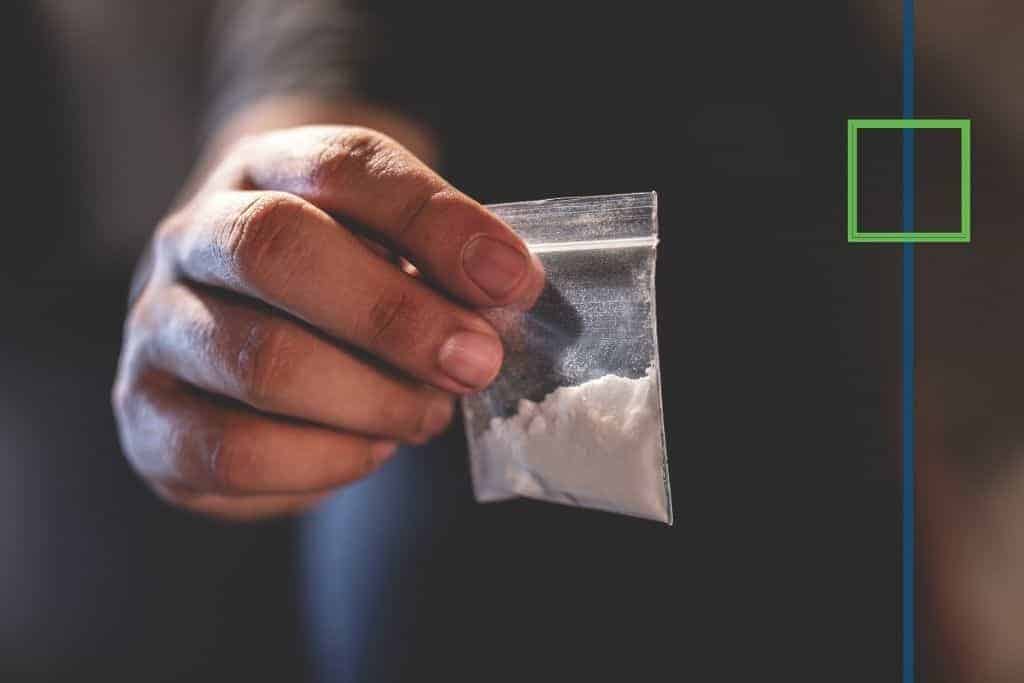Cocaine and Working Out
Is cocaine a stimulant? Why do some users of the drug are working out on cocaine? According to the National Institute on Drug Abuse, cocaine speeds up your whole body. You may feel full of energy, happy, and excited. But then your mood can vary. You can become angry, nervous, and afraid that someone’s out to get you. You might do things that make no sense. After the “high” of the cocaine wears off, you can “crash” and feel tired and sad for days. You also crave to retake the drug to try to feel better. [1]
Cocaine is a white powder. It can be snorted up the nose, mixed with water, and injected with a needle. Cocaine can also be made into small white rocks called cracks. Crack is smoked in a small glass pipe.
It is easy to lose control over cocaine use and become addicted. Then, it can be hard to stay off the drug even if you get cocaine addiction treatment. People who stopped using cocaine can still feel intense cravings, sometimes even years later. But what makes cocaine users use the drug before working out?
Cocaine Before Working Out
Cocaine is classified under Schedule II drugs. These drugs are considered dangerous. They are defined as drugs with a high potential for substance abuse, with use potentially leading to severe psychological or physical dependence. [2] Despite cocaine being listed as a Schedule II drug and a banned narcotic in the US, athletes have been known to take it to boost performance. It is frequently used for its stimulating properties, which include heightened alertness and vitality.
Get Help. Get Better. Get Your Life Back.
Searching for Accredited Drug and Alcohol Rehab Centers Near You?
Even if you have failed previously and relapsed, or are in the middle of a difficult crisis, we stand ready to support you. Our trusted behavioral health specialists will not give up on you. When you feel ready or just want someone to speak to about therapy alternatives to change your life call us. Even if we cannot assist you, we will lead you to wherever you can get support. There is no obligation. Call our hotline today.
(844) 597-1011Dangers of Cocaine as Pre-Workout
According to the National Center for Biotechnology Information, athletic life may lead to drug abuse for several reasons, including performance enhancement, self-treat, otherwise untreated mental health conditions, and dealing with stressors, such as pressure to perform, injuries, physical pain, and retirement from the sport. [3] The same goes for gym-goers.
Performance-enhancing drugs have continued to evolve, with “advances” in doping strategies driven by improved drug testing detection methods and advances in scientific research that can lead to the discovery and use of substances that may later be banned. Doping is the term for using drugs or other substances for performance enhancement.

Research has shown stimulants to improve endurance, increase anaerobic performance, decrease feelings of fatigue, improve reaction time, increase alertness, and cause weight loss. Stimulants include:
- Cocaine
- Caffeine
- Amphetamine
- D-methamphetamine
- Methylphenidate
- Ephedrine
- Pseudoephedrine
- Dimethylamylamine
- Fenfluramine
- Modafinil
- Pemoline
- Selegiline
- Sibutramine
- Strychnine
Is cocaine a stimulant? Yes. But no matter how cocaine is taken, it is dangerous. Some of the most common serious problems include heart attack and stroke. You are also at risk for HIV/AIDS and hepatitis from sharing needles or having unsafe sex. cocaine is more dangerous when combined with other drugs or alcohol.
Trainers, coaches, and health care providers should provide evidence-based, safe alternatives to performance-enhancing drugs, including optimal nutrition, weight-training strategies, and psychological approaches to improving performance, all of which may help with a person’s confidence in their natural abilities.

Get Your Life Back
Find Hope & Recovery. Get Safe Comfortable Detox, Addiction Rehab & Dual Diagnosis High-Quality Care.
Hotline(844) 597-1011Rhabdomyolysis
Working out on cocaine may cause much damage, including long-term conditions. About 24% of cocaine users develop rhabdomyolysis. [4] Rhabdomyolysis is a common complication of cocaine use, and muscle symptoms fail to predict its development. Many of the cases of rhabdomyolysis were not predictable from history or physical examination, making laboratory evaluation essential.
Rhabdomyolysis from cocaine is multifactorial due to increased sympathomimetic activity, muscle hyperactivity, hyperthermia, and arterial vasoconstriction that leads to muscle ischemia. Common drug-induced rhabdomyolysis symptoms include:
- Muscle pain in the shoulders, thighs, or lower back
- Muscle weakness or trouble moving arms and legs
- Dark red or brown urine
- Decreased urination or trouble urinating
- Abdominal pain
- Dehydration
- Nausea and vomiting
- Fever
- Rapid heart rate
- Confusion
- Loss of consciousness
Working Out After Cocaine
Pre-workout formulas are popular in the fitness community due to their effects on energy levels and exercise performance. However, including cocaine as your pre-workout is never a good idea. Some people find that cocaine before working out helps them perform simple physical and mental tasks more quickly, although others experience the opposite effect. Large amounts of cocaine can lead to bizarre, unpredictable, and violent behavior. Working out on cocaine can lead to substance use disorder.
Other health effects of cocaine use include:
- Constricted blood vessels
- Dilated pupils
- Nausea
- Raised body temperature and blood pressure
- Fast or irregular heartbeat
- Tremors and muscle twitches
- Restlessness

Long-Term Effects
Some long-term health effects of cocaine depend on the method of use and include the following:
- Snorting: Loss of smell, nosebleeds, frequent runny nose, and problems with swallowing
- Smoking: Cough, asthma, respiratory distress, and higher risk of infections like pneumonia
- Consuming by mouth: Severe bowel decay from reduced blood flow
- Needle injection: Higher risk for contracting HIV, hepatitis C, and other bloodborne diseases, skin or soft tissue infections, as well as scarring or collapsed veins
First-class Facilities & Amenities
World-class High-Quality Addiction & Mental Health Rehabilitation Treatment
Rehab Centers TourRenowned Addiction Centers. Serene Private Facilities. Inpatient rehab programs vary.
Addiction Helpline(844) 597-1011Proven recovery success experience, backed by a Team w/ History of:
15+
Years of Unified Experience
100s
5-Star Reviews Across Our Centers
10K
Recovery Success Stories Across Our Network
- Low Patient to Therapist Ratio
- Onsite Medical Detox Center
- Comprehensive Dual-Diagnosis Treatment
- Complimentary Family & Alumni Programs
- Coaching, Recovery & Personal Development Events
Is Cocaine a Stimulant?
Cocaine is a powerfully addictive stimulant drug made from the leaves of the coca plant native to South America. Although health care providers can use it for valid medical purposes, such as local anesthesia for some surgeries, recreational cocaine use and working out on cocaine are prohibited. You do not have to take cocaine daily to be addicted to it. A sign of addiction is that you’ve tried to stop but cannot.
Street dealers may mix cocaine with other drugs, such as the stimulant amphetamine or synthetic opioids, including fentanyl. Adding synthetic opioids to cocaine is especially treacherous when people using cocaine don’t realize it contains this hazardous additive. Increasing overdose deaths among cocaine users might be related to this tampered cocaine.
Cocaine increases the natural chemical messenger dopamine levels in brain circuits related to controlling movement and reward. Normally, dopamine recycles back into the cell that released it, shutting off the signal between nerve cells. However, cocaine prevents dopamine from being recycled, causing large amounts to build up in the space between two nerve cells, stopping regular communication. This flood of dopamine in the brain’s reward circuit strongly reinforces drug-taking behaviors. The reward circuit may adapt with continued drug use, becoming less sensitive to the drug. As a result, people use more and more frequent doses to feel the same high and to obtain relief from withdrawal. [5]
Cocaine and Exercise Addiction
Although drug usage, such as cocaine, has decreased due to the prohibition of performance-enhancing drugs, stimulants are still a significant problem in sports. The National Library of Medicine reports a sharp rise in stimulants, including cocaine, among college athletes in recent years. [6]
Cocaine’s stimulant effects increase the risk of cardiac arrest and other serious health issues when used before exercise. The following permanent damage may also occur when using cocaine:
- Seizures, stroke, and paralysis
- Chronic anxiety and psychosis (severe mental disorders)
- Decreased mental functioning
- Heart irregularities and reduced heart function
- Kidney failure requiring dialysis (kidney machine)
- Destruction of muscles, which can lead to amputation
Exercise addiction is an unhealthy obsession with physical fitness and exercise. It’s often a result of body image disorders, substance abuse, and eating disorders. If using cocaine before working out fuels an exercise addiction or vice versa, it might imply co-occurring disorders that need rehab treatment.
World-class, Accredited, 5-Star Reviewed, Effective Addiction & Mental Health Programs. Complete Behavioral Health Inpatient Rehab, Detox plus Co-occuring Disorders Therapy.
CALL(844) 597-1011End the Addiction Pain. End the Emotional Rollercoaster. Get Your Life Back. Start Drug, Alcohol & Dual Diagnosis Mental Health Treatment Now. Get Free No-obligation Guidance by Substance Abuse Specialists Who Understand Addiction & Mental Health Recovery & Know How to Help.
Cocaine Addiction Treatment Center
The mainstay of treatment for the problems associated with chronic cocaine abuse is abstinence. However, by recognizing the manifestations of chronic abuse, clinicians will be better able to help their patients get treatment for their addiction and deal with the neurologic complications related to regular abuse.
If you are addicted to drugs such as cocaine, your first step in recovery should be a cocaine detox in a safe and medically supervised setting. That is why We Level Up is here for you. We Level Up detox center medically assists patients in clearing their systems of addictive substances, such as alcohol and addictive substances. For anyone who suffers from addiction, we know that just the thought of having to stop using can cause severe mental distress. Inpatient rehab will help you manage the medical detox process.
Is cocaine a stimulant? Yes. And unlike heroin addiction treatment, no medicines work as substitutes for powder cocaine, crack cocaine, and other stimulants. While there are no FDA-approved medications for cocaine use disorder, the most effective treatments for cocaine addiction are behavioral therapies, such as cognitive-behavioral and contingency management interventions.

Medically-Assisted Detox
Medical detox is often considered the first stage of treatment. It will help you navigate the complicated process of cocaine withdrawal but doesn’t address patterns of thought and behavior contributing to drug use. The symptoms of cocaine withdrawal range from moderate to severe:
- Dysphoria
- Depression
- Anxiety
- Decreased libido
- Psychological and physical weakness
- Pain
- Compulsive cravings
Various treatment approaches and settings can help provide the ongoing support necessary to maintain long-term sobriety after you complete detox. Cravings are very common during detox and can be challenging to overcome. This often leads to relapse. Constant medical care provided during inpatient drug rehab treatment helps prevent relapse. Clinicians can give necessary medication and medical expertise to lessen cravings and the effects of withdrawals. Residential rehab is usually only recommended if your situation is particularly severe or complicated.
Psychotherapy
Regardless of the specific type of substance use disorder treatment, patients must receive services that match their treatment needs. Several different modalities of psychotherapy have been used in the treatment of mental health disorders along with cocaine addiction, including:
- Cognitive Behavioral Therapy (CBT) – An effective treatment that involves changing both the patterns of negative thoughts and the behavioral routines which are affecting the daily life of the depressed person for various forms of depression. Cognitive behavior therapy has been evaluated as particularly effective for treating cocaine addiction and co-occurring disorders of depression and anxiety.
- Dialectical Behavioral Therapy – A comprehensive mental health and substance abuse treatment program whose ultimate goal is to aid patients in their efforts to build a life worth living. The main goal of DBT is to help a person develop what is referred to as a “clear mind.”
- Person-Centered Therapy – A strategy that allows and encourages clients to understand and resolve their concerns in a safe, supportive environment.
- Solution-Focused Therapy – An approach interested in solutions that can be quickly implemented with a simple first step leading to further positive consequences.
Experience Transformative Recovery at We Level Up Treatment Centers.
See our authentic success stories. Get inspired. Get the help you deserve.
Start a New Life
Begin with a free call to an addiction & behavioral health treatment advisor. Learn more about our dual-diagnosis programs. The We Level Up Treatment Center Network delivers recovery programs that vary by each treatment facility. Call to learn more.
- Personalized Care
- Caring Accountable Staff
- World-class Amenities
- Licensed & Accredited
- Renowned w/ 100s 5-Star Reviews
We’ll Call You
Dual Diagnosis Treatment
Drug abuse and mental health disorders often co-occur. In many cases, traumatic experiences can result in a mental health disorder and substance abuse. Dual diagnosis rehabilitation treats both of these issues together. The best approach for the treatment of dual diagnosis is an integrated system. This strategy treats both the substance abuse problem and the mental disorder simultaneously. Regardless of which diagnosis (mental health or substance abuse problem) came first, long-term recovery will depend mainly on the treatment for both conditions done by the same team or provider.
Looking for help for a loved one who’s working out on cocaine?
While you can help a cocaine addict to some extent, addiction is a disease, and they will probably require professional rehab to break their addiction. You may offer to schedule an appointment to see their doctor and then accompany them for emotional support while you go through your recommendations and the following steps. Alternatively, you may reach out to We Level Up to learn more about the cocaine addiction treatment we provide.
We Level Up thorough approach to rehabilitation supports several levels of care to ensure the best possible outcome for every patient who enters our doors. From an intensive and more supportive atmosphere for those in the early days of recovery to a comfortable residential-style living dynamic upon completion of detox, We Level Up is here to help guide you down the safe, medication-assisted treatment and results-based path to sobriety.
If you or a loved one is struggling with cocaine addiction or working out on cocaine, call today to speak with one of our treatment specialists. Your call is private and confidential, and there is never any obligation.
Search Florida Rehab Centers & Other Resources
Sources:
[1] Health Topics → Cocaine – https://medlineplus.gov/cocaine.html – U.S. Department of Health and Human Services National Institutes of Health
[2] Drug Scheduling – https://www.dea.gov/drug-information/drug-scheduling – Drug Enforcement Administration
[3,6] Drug abuse in athletes – https://www.ncbi.nlm.nih.gov/pmc/articles/PMC4140700/ – Reardon CL, Creado S. Subst Abuse Rehabil. 2014 Aug 14;5:95-105. doi: 10.2147/SAR.S53784. PMID: 25187752; PMCID: PMC4140700.
[4] Incidence of cocaine-associated rhabdomyolysis – https://pubmed.ncbi.nlm.nih.gov/1996798/ Welch RD, Todd K, Krause GS. Ann Emerg Med. 1991 Feb;20(2):154-7. DOI: 10.1016/s0196-0644(05)81215-6. PMID: 1996798.
[5] NIDA. 2021, April 8. Cocaine DrugFacts. Retrieved from https://nida.nih.gov/publications/drugfacts/cocaine on 2022, October 3




